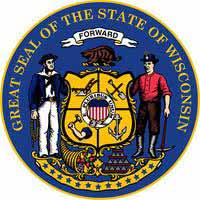
Wisconsin unemployment benefits serve as a safety net for individuals who have lost their jobs and are actively seeking employment. These benefits, administered by the Wisconsin Department of Workforce Development, provide temporary financial assistance to eligible workers who are unemployed through no fault of their own.
The program offers monetary compensation to help cover basic living expenses during periods of joblessness. However, it’s important to note that eligibility requirements, weekly benefit amounts, and duration of benefits vary based on factors like previous earnings and work history.
Wisconsin UI Benefits Calculator
The Wisconsin Unemployment Benefits Calculator helps you estimate your UI weekly benefits amount.
Calculate Your Wisconsin Unemployment Benefits
See our Wisconsin unemployment calculator to estimate your UI benefit payments.
Wisconsin Unemployment Calculator
Eligibility for UI Benefits In Wisconsin
In order to qualify for Wisconsin UI benefits, you must meet the state’s eligibility requirements. This includes:
- Being unemployed through no fault of your own
- Meeting the wage requirements
- Being willing and able to work
- Registering for work with the Job Center of Wisconsin
- Fulfilling the weekly work search requirements
- Accepting any suitable job offer
Monetary eligibility
When applying for Wisconsin unemployment insurance, you need to meet the state wage requirements. This means:
- You must have earned wages from a job that is covered by the UI program for at least two quarters during your base period.
- Your weekly benefit rate needs to be at least $54 or higher.
- Combined wages from the three calendar quarters with the lowest earnings of your base period must be at least four times your weekly benefit rate.
- Total wages earned during your base period should be at least 35 times your weekly benefit rate.
Your base period is the first four out of the previous five calendar quarters before you applied for UI benefits. If you do not meet the wage requirements using this base period, the department may choose to use an alternate base period to help you qualify. The alternate base period will review your wages during the four quarters before you applied for benefits.
Learn more about Wisconsin eligibility requirements
Job Separation
You must be employed through no fault of your own to qualify for Wisconsin unemployment insurance. This means that you are not unemployed because you voluntarily quit your job or were fired for misconduct or gross negligence.
Examples of qualifying employment separation include:
- Being laid off
- Having your work hours reduced due to lack of work available
- Quitting for a valid cause, meaning your employer was responsible for you quitting and left you with no other alternative (such as unsafe working conditions)
You will not qualify for UI benefits if:
- You voluntarily quit with no valid cause
- You were terminated due to misconduct
- You refused to work without good cause
You lost your job and it is in an excluded employment category, such as independent contractor, gig work, etc.
Maintaining Eligibility
After you file your initial application, you will need to file a weekly claim for every week you wish to receive unemployment compensation. You will be asked questions about:
- Your ability and availability to work
- Whether you looked for work
- The details of your job search activity
- If you refused any acceptable job offers
- Whether you worked during the week, and if so
- How much income you earned
Find out on job search requirements
How to apply for UI benefits in Wisconsin
Apply Online
Applying online is the easiest way to get Wisconsin unemployment benefits. Follow these instructions to apply online. If you’ve applied for unemployment benefits in the past, you will need to log in to the portal with your existing credentials. If this is your first time applying for unemployment in Wisconsin, you will need to create an account.
Phone
While the online portal is the preferred way to apply for Wisconsin unemployment benefits, you can call a claims specialist if you don’t have access to the internet.
For applicants to apply for benefits make sure to carry the following documents:
There are two ways to apply for unemployment benefits in Wisconsin: online and by phone. You will need to provide a few personal documents in order to apply. This includes:
- Your Social Security number
- Your Wisconsin driver’s license
- 18 months of employment history, including:
- Employer business name
- Employer address
- Employer phone number
- First and last dates of work
- Reason for separation
- Alien registration number (if applicable)
- Separation forms if you worked for the military or federal government
- The name and local number of your union hall if you’re a union member
Learn about the Wisconsin UI application
How to file weekly claims
You can file your weekly claims online or by phone. To file online, visit my.unemployment.wisconsin.gov and log in with the username and password you created when you initially applied. Click the “File Weekly Certification” button and follow the prompts on the screen.
If you need to file your weekly claim by phone, you can call the claimant assistance line.
Learn how to claim weekly benefits
Things To Know After Filing An Application
After you submit your application for unemployment benefits, it’s crucial to stay organized and adhere to the program’s requirements to maintain your eligibility. Failure to follow these rules could lead to disqualification from receiving unemployment insurance.
Here are a few important points to remember:
Unemployment fraud
If you receive unemployment compensation benefits, it is your responsibility to meet the eligibility requirements established by the state of Wisconsin. It is important to be honest and provide accurate information about your salary and work history when applying for unemployment compensation. Giving false or incorrect information to receive or increase your benefits is considered unemployment fraud.
Overpayments
When you receive more benefits than you’re entitled to, it is known as an overpayment. This can occur if you make a mistake on your application or if there is an error made by the department in calculating your benefits. If you find yourself in this situation, you will be required to repay the extra amount you received back to the state.
Extended Benefit programs
During periods of high unemployment, Extended Benefits are offered to those who have depleted their normal benefit amounts. These benefits are decided upon by the state and federal governments and depend on economic circumstances, like high rates of unemployment, natural disasters, and nationwide pandemics.
Wisconsin does not currently offer Extended Benefits. Unemployment claimants are eligible for up to 26 weeks of benefits or 40% of their total base period wages per year—whichever is smaller.
Job training assistance
Job Center of Wisconsin offers a wide array of programs and services meant to help unemployed workers find new employment. These services include:
- Dislocated Worker Program
- Fidelity Bonding Program
- Job Center of Wisconsin workshops and events
- Older Worker
- Rapid Response Program
- Veteran Services
- Wisconsin Apprenticeship
- Wisconsin Employment Transportation Assistance Program
- More
Find job training opportunities in WI
Wisconsin unemployment contact information
If you need help or have questions about filing for unemployment, you will need to call the claimant assistance line.
If you would like information about job seeker programs or counseling to find a new job, call your local Job Center of Wisconsin location.
Common Questions
Can I file for unemployment benefits if I am sick or on vacation?
To qualify for unemployment insurance benefits, you must be capable of working and have the availability for full-time employment. If you are too sick to perform any work, you don’t meet the requirements for receiving unemployment benefits because you are unable to work.
Do I have to pay federal taxes on my unemployment benefits?
Yes, you will need to report unemployment income on your annual income taxes. You can opt to have the state withhold 10% of your weekly benefit payment amount for federal taxes and 5% for state taxes. You will receive tax form 1099-G the January following your unemployment claim.
What is the maximum benefit amount I can receive?
The maximum weekly benefit amount in Wisconsin is $370. You cannot earn more than this, no matter how much you previously earned.
How do I end my claim after I get a full time job?
Once you find a full time job, you can simply stop filing your weekly claim for unemployment benefits. The Wisconsin Department of Workforce Development will assume that you have found a new job or left the labor market, and will stop paying benefits.
Can I file for unemployment benefits in another state while living in Wisconsin?
Federal law prohibits you from filing for benefits in multiple states. However, if you have earned wages in other states, you can file a combined wage claim. This can potentially raise the amount of money you receive each week, ensuring that you receive the full amount you are entitled to.







Comments are closed.